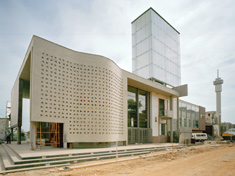South Africa's judiciary
South Africa has an independent judiciary, subject only to the Constitution and the
law.
The Constitution is the supreme law of the country and binds all legislative, executive
and judicial organs of state at all levels of government.
No person or organ of state may interfere with the functioning of the courts, and an
order or decision of a court binds all organs of state and people to whom it applies.
The Constitution provides for the following courts:
- Constitutional Court
- Supreme Court of Appeal (SCA)
- high courts
- magistrate's courts
- any other court established or recognised in terms of an Act of Parliament
There are also special income tax courts, the Labour Court and the Labour Appeal
Court, the Land Claims Court, the Competition Appeal Court, the Electoral Court,
divorce courts, small claims courts, "military courts", and equality courts.
The Constitutional Court, Supreme Court of Appeal and High Courts have the power to
protect and regulate their own processes, and to develop the common law.
The courts are also required to declare any law or conduct that is inconsistent with the
Constitution to be invalid, and develop common law that is consistent with the values
of the Constitution, and the spirit and purpose of the Bill of Rights.
How are judges appointed?
Judges in the various courts are appointed by the President in consultation with the
Judicial Service Commission, the leaders of parties represented in National Assembly,
and, where relevant, the President of the Constitutional Court.
The Judicial Service Commission includes the Chief Justice, the President of the
Constitutional Court and the Minister of Justice. It is a widely representative body,
with the transformation of the
judiciary remaining one of government's key priorities.
Legal system
South African law is a combination of different legal systems, with its origin in Europe
and Great Britain. Its foundation lies in Roman-Dutch law, which is itself a blend of
indigenous Dutch customary law and Roman law. The legal system that prevailed in
Holland during the 17th and 18th centuries was introduced to South Africa after the
Cape was settled by the Dutch in the 1600s.
When the Cape was occupied by the British at the end of the 18th century, Roman-
Dutch law was retained and confirmed as the common law of the country. English
became the language of the courts and English legal procedures and the English law of
evidence in both criminal and civil matters were introduced.
As with any other country, the common law has been augmented by statutory law and
many of the cases before the court are now concerned with their interpretation and
application.
Because of the unique heritage of South African law, and the constitutional imperative
to regard comparative law, foreign law is frequently consulted, not as binding but as
persuasive authority.
Judicial decisions are themselves a source of law. The decisions of the court are
binding on all lower courts.
The Department of Justice and Constitutional Development is responsible for ensuring
an accessible justice system that promotes and protects social justice, fundamental
human rights and freedoms, thus providing a transparent, responsive and accountable
justice for all.
SAinfo reporter, incorporating material from the
South African Yearbook
Reviewed: February 2014
 South Africa's Constitutional Court building on Constitution Hill (Image: Constitution Hill)
South Africa's Constitutional Court building on Constitution Hill (Image: Constitution Hill)



